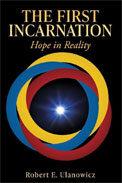
 |
In a unique approach to the relationship between science and spirituality, this text posits that the study of life processes and ecosystems theory can support a belief in a higher power. The author found inspiration in his freshman philosophy course, which ultimately led him to study ecology, intrigued by the thought of finding God through studying ecosystems. This text seeks to unite his scientific mind with his spirituality.
The author notes that life is a “configuration of irreversible processes,” not a static entity, and therefore, cannot be stringently subject to laws of physics. These laws are limited in their scope. The autonomy of nature makes it so that the laws cannot predict outcomes with perfect reliability, thus opening a space for agency and free will. Free will is driven by mutual beneficence, as opposed to the scientific definition of evolution, which is driven by competition. The author draws parallels to the natural phenomenon of mutual beneficence and the religious teaching of “love thy neighbor.” He notes that in the natural world, miracles occur all the time, as in an unexpected recovery from illness. He pulls the narrative full circle to demonstrate how God can be found in all workings of the natural world as the First Incarnation.
Providing personal stories and anecdotes scattered throughout philosophical dialogue and mathematical concepts, this is a perfect addition to the argument that science and spirituality coexist. The author sets out his position with clarity and precision. The depth of his research and his detailed arguments demonstrate his lifelong passion for the subject. Although the author breaks down his points in comprehensible language, readers should be at least somewhat familiar with metaphysical and scientific concepts. Overall, this is an enlightening and enjoyable read that systematically leads to the author’s stunning conclusion.
RECOMMENDED by the US Review